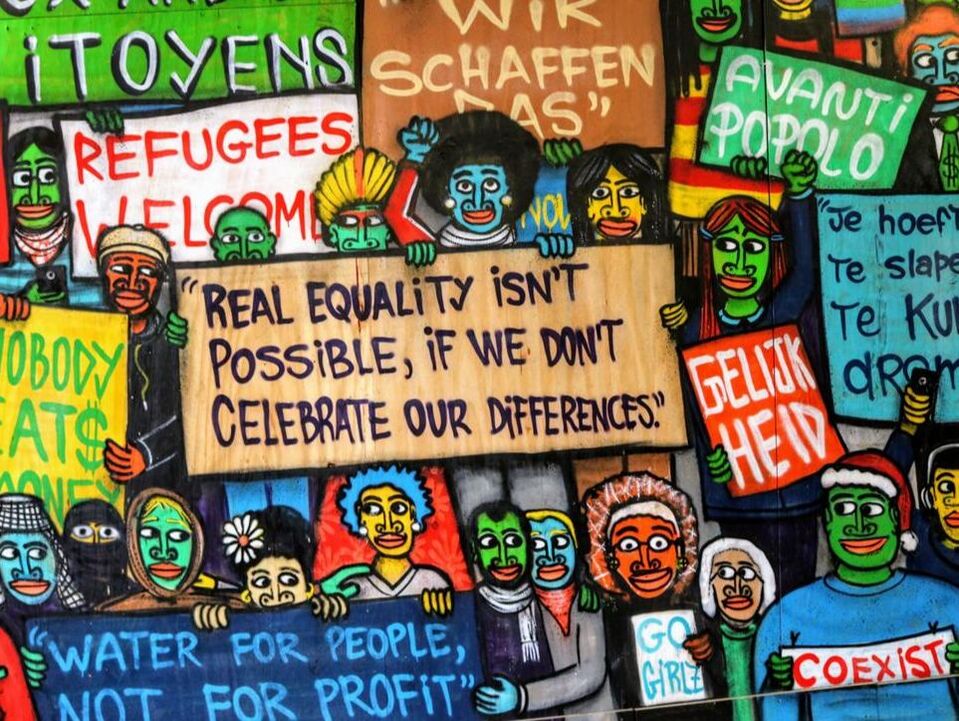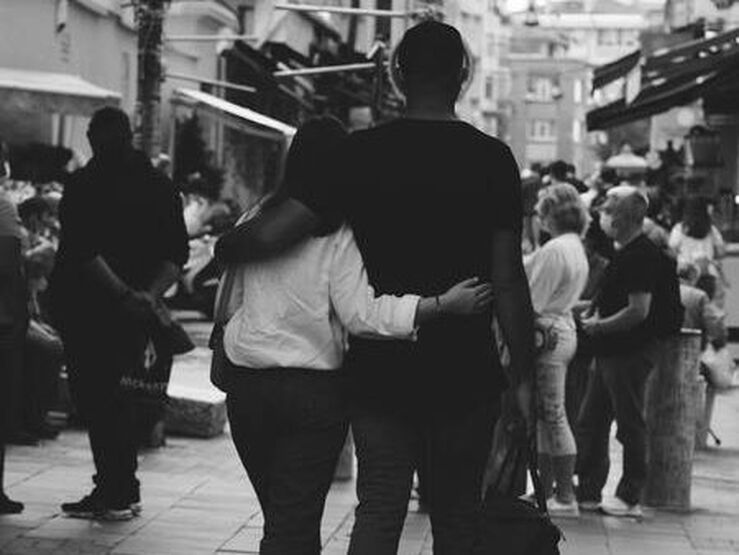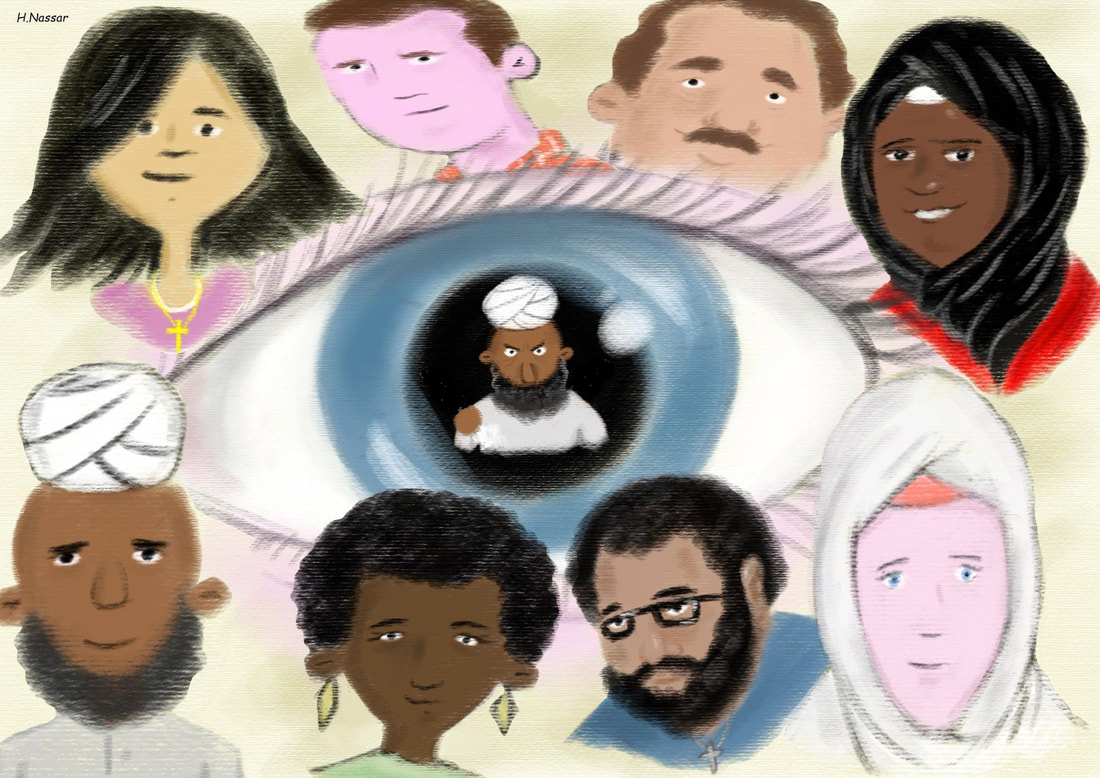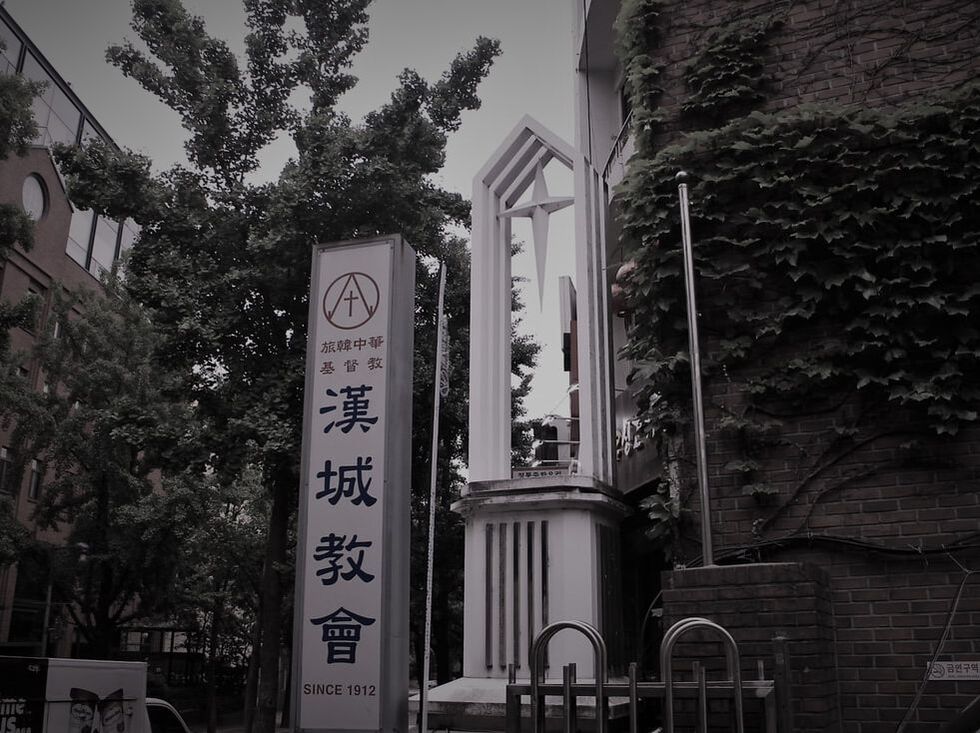|
|
|
In majority white countries, the Black Lives Matter protests that unfolded after the murder of George Floyd were accompanied by the intensification of public debates on systemic racism and white allyship. Some media focused on Black-white couples, discussing the impact of these events on white partners’ understanding of anti-black racism in their Black partners’ lives. As part of the ERC-funded project ‘Regulating Mixed Intimacies in Europe (EUROMIX), over the past four years I have explored Black-white couples’ experiences of racism and discrimination in their everyday lives.
Drawing from ethnographic fieldwork I conducted in 2018-2019, my Identities article, ‘Interracial couples and the phenomenology of race, place and space in contemporary England’, looks at partners’ perceptions of dis/comfort and un/safety across different contexts: when they jointly move in public spaces, choose where to make home, and travel for leisure. By juxtaposing these scenes, the article foregrounds a multi-layered economy of constraint and choice underpinning the lives of the opposite and same-sex couples that I have met and/or interviewed.
0 Comments
Arab Americans have been categorised as White on official government forms for several decades, which grossly misrepresents this population. Advocacy groups unsuccessfully fought during both the Obama and Trump administrations to have the ethnicity category expanded in the 2020 Census. The ramifications of this community remaining uncounted include lack of funding for social, education, and health care services and less leverage in political issues. Along with negating the incredible diversity within this group, such categorisation excludes Arab Americans from affirmative action programmes.
The recognition of this ethnic group on government forms would allow for their inclusion in such programmes, which is crucial given the prominence of discrimination in the US. However, the irony lies in how mainstream society tends to change their view depending on current events. When there are no crises involving Arabs around the world, Arab Americans are seen as White. However, when a crisis does occur involving Arabs – as either transgressors or victims (i.e. 9/11, invasion of Iraq) – they will be gazed upon as ‘Other’ and enemies of America. The rise in hate crimes against Arab Americans – and anyone who fit into the public’s notions of what an Arab or Muslim looks like – following the terrorist attacks of 9/11 is a prime example of this phenomenon. Consequently, regardless of being labeled as White, Arab Americans have experienced discrimination similar to other racially visible minority groups. This begs the question: if they are recognised as White, then why are they treated as ‘Other’?
The recent Black Lives Matters (BLM) protests offer a juncture for Britain to have a broad and sensible conversation on race and racism, similar to that headed by the Clinton administration in America 20 years ago. The recent re-appearance of the debate on terminology – the question of how to refer to racialised groups in Britain – may be the beginning of this. It is not a new question but is being posed by a new generation of Black Britons, who having been born in the UK should be unfamiliar with Hall’s sense of living ‘on the hinge between the colonial and post-colonial worlds’ (Hall & Schwarz 2017, 11).
In my Identities article, ‘The stigma of being Black in Britain’, I argued that despite more than 50 years since Britain adopted its first Race Relations Act (1965), colour remains a ‘visible feature of the urban landscape’ (Hall & Schwarz 2017, 184) in the UK. I described Brexit as an indication that, as Stuart Hall wrote many years ago, many of the ‘white underprivileged…believe that what they experienced was not because they were poor and exploited but ‘because the blacks are here' (Hall & Schwarz 2017, 185).
Korea has been said to be one of the most racially and culturally homogenous countries in the world. Although many critics claim that this is a 'myth', it is true that the country has not suffered from the racial and religious conflicts that have troubled so many countries. This alleged racial homogeneity may make a different race the primary indicator of 'the stranger' in Korea.
Thus, I was somewhat surprised by the descriptive statistics from a nationally representative survey of the permanent and naturalised immigrants in Korea conducted in 2013. According to the survey, the majority of immigrants who experienced perceived discrimination believed that they were discriminated against because of their national backgrounds, and not race, religion or economic status. From the respondents’ perspective, Koreans seem to be very proud of their nationality. If, as the immigrants claim, Koreans are so proud of being Korean, what is the source of that national pride? Further, could it be the way they justify discrimination against immigrants? My Identities article, 'Constructing Chineseness as other in the evolution of national identity in South Korea', addresses these questions. Drawing on scholarly publications, newspapers, policy reports, surveys and films, I compared two different Chinese immigrant groups who came to Korea in different eras. I traced the narratives of Chineseness used to construct Chinese immigrants as strangers and examined how these narratives are related to Koreans’ evolving self-perceptions. The country’s national goals and sources of pride – in particular, historical eras – constitute the national subjectivity. As the most immediate strangers, Chinese immigrants have been easy targets for Koreans to demonstrate and confirm the new national identities they desire. 
Othering processes are inherently complex, and in forced migration contexts, national public discourses tend to reverberate with anxieties over antagonism, discrimination and increasing tensions.
As an alternative to this public discourse, which ultimately tends to associate migrants and refugees with social threat, we might examine pockets of private and semi-private spaces from which quieter voices – women’s voices, perhaps – could catalyse more positive attitudes and better informed perceptions with a gender lens. One space where such voices might emerge is in all-women ‘gün’ (or ‘day’) groups. These are periodic, informal gatherings of relatives, friends and/or acquaintances, usually hosted in one member’s home, and are crucial spaces for women’s interaction and socialisation in Turkey. In fact, in my Identities article, co-authored with Hatice Mete, ‘The afraid create the fear: perceptions of refugees by “gün” groups in Turkey’, we analysed conversations from several of these groups in Mersin in order to investigate local women’s perceptions of forcibly displaced Syrians. |
|
Explore Identities at tandfonline.com/GIDE |
|
The views and opinions expressed on The Identities Blog are solely those of the original blog post authors, and not of the journal, Taylor & Francis Group or the University of Glasgow.




